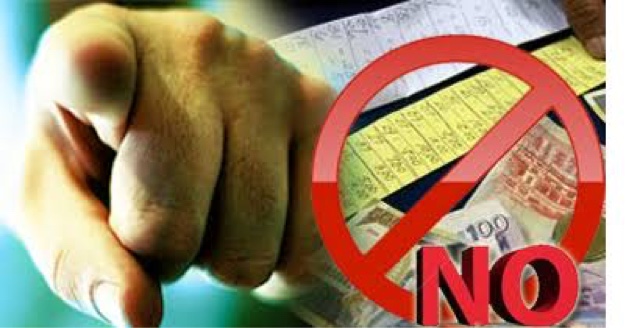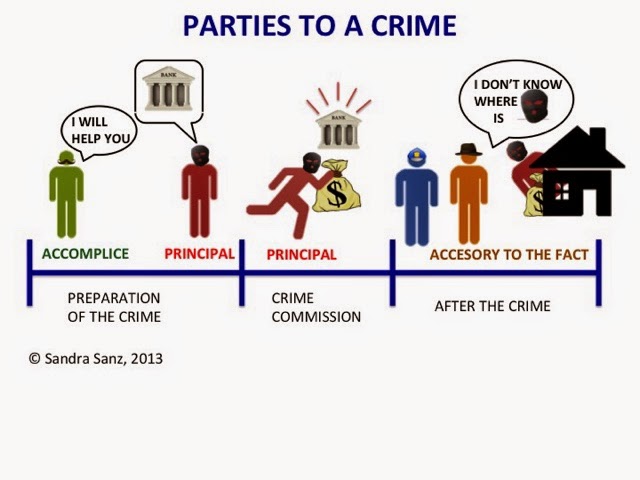Cybercrime Prevention Act of 2012: Crimes and Their Penalties
With the the declaration of the Supreme Court of the Philippines that several provisions of the Cybercrime Prevention Act of 2012 including penalizing internet libel are constitutional, a lot of the netizens were unhappy and worried about their freedom on speech online.
Precisely the Cybercrime Prevention Act of 2012 was declared constitutional on Tuesday, February 18, 2014, thereby ending the debates on the constitutionality of the said law. There are some provisions of the law that were declared unconstitutional.
Hullabaloo is actually poured into this cybercrime libel or online libel. Accordingly only the original author of a libelous remark or article online can be penalized. Those who would like to repost, share, retweet, or like the said libelous comment are spared with this offense.
Every defamatory imputation is presumed to be malicious, even if it be true, if no good intention and justifiable motive for making it is shown as stated in the Revised Penal Code of the Philippines.
So what are the crimes left in the Cybercrime Prevention Act of 2012 remained Constitutional? What are their corresponding penalties as provided in the said law? What is/are the crime/s declared unconstitutional?
SEC. 4. Cybercrime Offenses. — The following acts constitute the offense of cybercrime punishable under this Act:
(a) Offenses against the confidentiality, integrity and availability of computer data and systems:
(1) Illegal Access. – The access to the whole or any part of a computer system without right.
(2) Illegal Interception. – The
interception made by technical means without right of any non-public
transmission of computer data to, from, or within a computer system
including electromagnetic emissions from a computer system carrying such
computer data.
(3) Data Interference. — The intentional
or reckless alteration, damaging, deletion or deterioration of computer
data, electronic document, or electronic data message, without right,
including the introduction or transmission of viruses.
(4) System Interference. — The
intentional alteration or reckless hindering or interference with the
functioning of a computer or computer network by inputting,
transmitting, damaging, deleting, deteriorating, altering or suppressing
computer data or program, electronic document, or electronic data
message, without right or authority, including the introduction or
transmission of viruses.
(5) Misuse of Devices.
(i) The use, production, sale, procurement, importation, distribution, or otherwise making available, without right, of:
(aa) A device, including a computer
program, designed or adapted primarily for the purpose of committing any
of the offenses under this Act; or
(bb) A computer password, access code,
or similar data by which the whole or any part of a computer system is
capable of being accessed with intent that it be used for the purpose of
committing any of the offenses under this Act.
(ii) The possession of an item referred
to in paragraphs 5(i)(aa) or (bb) above with intent to use said devices
for the purpose of committing any of the offenses under this section.
(6) Cyber-squatting. – The acquisition
of a domain name over the internet in bad faith to profit, mislead,
destroy reputation, and deprive others from registering the same, if
such a domain name is:
(i) Similar, identical, or confusingly
similar to an existing trademark registered with the appropriate
government agency at the time of the domain name registration:
(ii) Identical or in any way similar with the name of a person other than the registrant, in case of a personal name; and
(iii) Acquired without right or with intellectual property interests in it.
(b) Computer-related Offenses:
(1) Computer-related Forgery. —
(i) The input, alteration, or deletion
of any computer data without right resulting in inauthentic data with
the intent that it be considered or acted upon for legal purposes as if
it were authentic, regardless whether or not the data is directly
readable and intelligible; or
(ii) The act of knowingly using computer
data which is the product of computer-related forgery as defined
herein, for the purpose of perpetuating a fraudulent or dishonest
design.
(2) Computer-related Fraud. — The
unauthorized input, alteration, or deletion of computer data or program
or interference in the functioning of a computer system, causing damage
thereby with fraudulent intent: Provided, That if no
damage has yet been caused, the penalty imposable shall be one (1) degree lower.
(3) Computer-related Identity Theft. –
The intentional acquisition, use, misuse, transfer, possession,
alteration or deletion of identifying information belonging to another,
whether natural or juridical, without right: Provided, That if no damage has yet been caused, the penalty imposable shall be one (1) degree lower.
(c) Content-related Offenses:
(1) Cybersex. — The willful engagement,
maintenance, control, or operation, directly or indirectly, of any
lascivious exhibition of sexual organs or sexual activity, with the aid
of a computer system, for favor or consideration.
(2) Child Pornography. — The unlawful or prohibited acts defined and punishable by Republic Act No. 9775 or the Anti-Child Pornography Act of 2009, committed through a computer system: Provided, That the penalty to be imposed shall be (1) one degree higher than that provided for in Republic Act No. 9775.
(4) Libel. — The unlawful or prohibited
acts of libel as defined in Article 355 of the Revised Penal Code, as
amended, committed through a computer system or any other similar means
which may be devised in the future.
SEC. 5. Other Offenses. — The following acts shall also constitute an offense:
(a) Aiding or Abetting in the Commission
of Cybercrime. – Any person who willfully abets or aids in the
commission of any of the offenses enumerated in this Act shall be held
liable.
(b) Attempt in the Commission of
Cybercrime. — Any person who willfully attempts to commit any of the
offenses enumerated in this Act shall be held liable.
SEC. 6. All crimes defined and penalized
by the Revised Penal Code, as amended, and special laws, if committed
by, through and with the use of information and communications
technologies shall be covered by the relevant provisions of this Act: Provided, That
the penalty to be imposed shall be one (1) degree higher than that
provided for by the Revised Penal Code, as amended, and special laws, as
the case may be.
SEC. 7. Liability under Other Laws. — A
prosecution under this Act shall be without prejudice to any liability
for violation of any provision of the Revised Penal Code, as amended, or
special laws.
What was declared unconstitutional is Section 4(c)(3) which provides as:
What are the penalties to be imposed for those who have found guilty committing any of the acts mentioned:
SEC. 8. Penalties. — Any person
found guilty of any of the punishable acts enumerated in Sections 4(a)
and 4(b) of this Act shall be punished with imprisonment of prision mayor or
a fine of at least Two hundred thousand pesos (PhP200,000.00) up to a
maximum amount commensurate to the damage incurred or both.
Any person found guilty of the punishable act under Section 4(a)(5) shall be punished with imprisonment of prision mayor or a fine of not more than Five hundred thousand pesos (PhP500,000.00) or both.
If punishable acts in Section 4(a) are committed against critical infrastructure, the penalty of reclusion temporal or
a fine of at least Five hundred thousand pesos (PhP500,000.00) up to
maximum amount commensurate to the damage incurred or both, shall be
imposed.
Any person found guilty of any of the
punishable acts enumerated in Section 4(c)(1) of this Act shall be
punished with imprisonment of prision mayor or a fine of at least Two hundred thousand pesos (PhP200,000.00) but not exceeding One million pesos (PhP1,000,000.00) or both.
Any person found guilty of any of the
punishable acts enumerated in Section 4(c)(2) of this Act shall be
punished with the penalties as enumerated in Republic Act No. 9775 or
the “Anti-Child Pornography Act of 2009″: Provided, That
the penalty to be imposed shall be one (1) degree higher than that
provided for in Republic Act No. 9775, if committed through a computer
system.
Any person found guilty of any of the punishable acts enumerated in Section 4(c)(3) shall be punished with imprisonment of arresto mayor or
a fine of at least Fifty thousand pesos (PhP50,000.00) but not
exceeding Two hundred fifty thousand pesos (PhP250,000.00) or both.
Any person found guilty of any of the
punishable acts enumerated in Section 5 shall be punished with
imprisonment one (1) degree lower than that of the prescribed penalty
for the offense or a fine of at least One hundred thousand pesos
(PhP100,000.00) but not exceeding Five hundred thousand pesos
(PhP500,000.00) or both.
SEC. 9. Corporate Liability. —
When any of the punishable acts herein defined are knowingly committed
on behalf of or for the benefit of a juridical person, by a natural
person acting either individually or as part of an organ of the
juridical person, who has a leading position within, based on: (a) a
power of representation of the juridical person provided the act
committed falls within the scope of such authority; (b) an authority to
take decisions on behalf of the juridical person: Provided, That
the act committed falls within the scope of such authority; or (c) an
authority to exercise control within the juridical person, the juridical
person shall be held liable for a fine equivalent to at least double
the fines imposable in Section 7 up to a maximum of Ten million pesos
(PhP10,000,000.00).
If the commission of any of the
punishable acts herein defined was made possible due to the lack of
supervision or control by a natural person referred to and described in
the preceding paragraph, for the benefit of that juridical person by a
natural person acting under its authority, the juridical person shall be
held liable for a fine equivalent to at least double the fines
imposable in Section 7 up to a maximum of Five million pesos
(PhP5,000,000.00).
The liability imposed on the juridical
person shall be without prejudice to the criminal liability of the
natural person who has committed the offense.
Sources: Republic Act No. 10175, http://technology.inquirer.net/34352/sc-declares-online-libel-in-cyber-crime-prevention-law-legal and http://www.abs-cbnnews.com/focus/02/18/14/why-you-wont-be-jailed-retweets-likes


Comments
Post a Comment